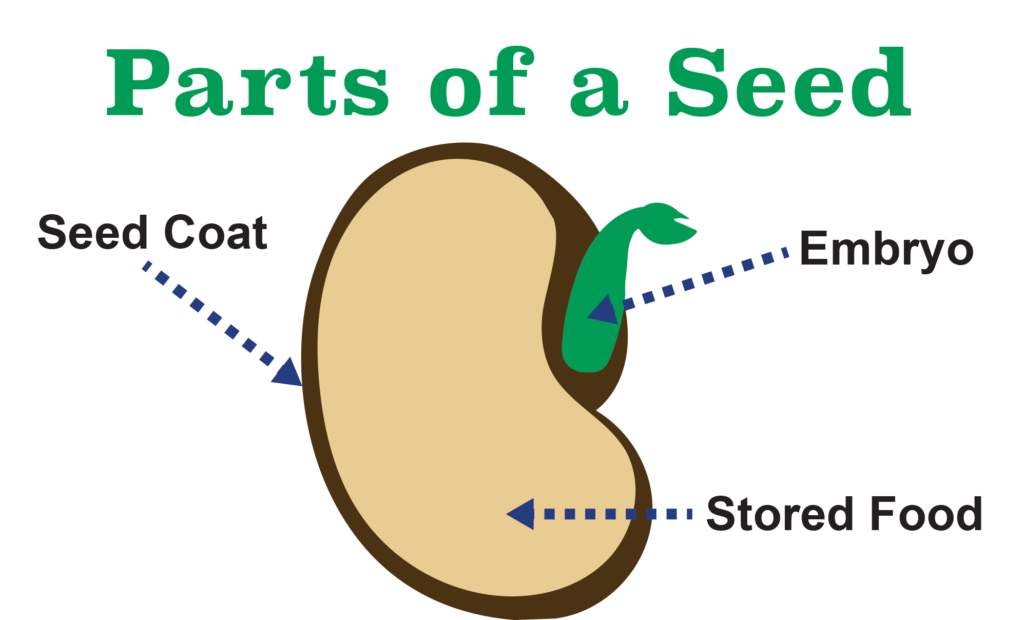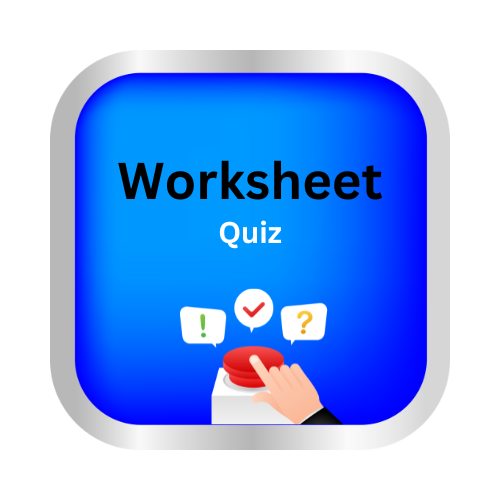Flowers, Fruits And Seeds
Key Notes :
Parts of a Flower

- Petals: Brightly colored to attract insects.
- Sepals: Protect the flower before it blooms.
- Stamen: Male part of the flower that produces pollen.
- Pistil: Female part of the flower that produces seeds.
Functions of Flowers
- Attract insects and birds for pollination.
- Help in reproduction by forming seeds.
Formation of Fruits
- Flowers develop into fruits after pollination.
- Fruits protect the seeds inside.
Types of Fruits
- Fleshy fruits: Have soft and juicy parts (e.g., apples, mangoes).

- Dry fruits: Do not have juicy parts (e.g., nuts, beans).

Seeds
- Seeds are found inside fruits.
- Seeds grow into new plants when given the right conditions (soil, water, and sunlight).
Parts of a Seed

- Seed coat: The outer covering for protection.
- Embryo: The baby plant inside the seed.
- Food storage: Provides energy for the seed to sprout.
Importance of Flowers, Fruits, and Seeds

- Flowers make plants look beautiful and attract pollinators.
- Fruits are a source of food for humans and animals.
- Seeds are essential for growing new plants.
Pollination
- The transfer of pollen from the stamen to the pistil.
- Pollinators include bees, butterflies, birds, and wind.
Germination
- The process by which a seed grows into a plant.
- Requires water, air, and warmth.
Uses in Daily Life
- Flowers: Decoration and making perfumes.
- Fruits: Food and nutrition.
- Seeds: Food (e.g., rice, wheat) and oil extraction (e.g., sunflower seeds).
Lets practice!

